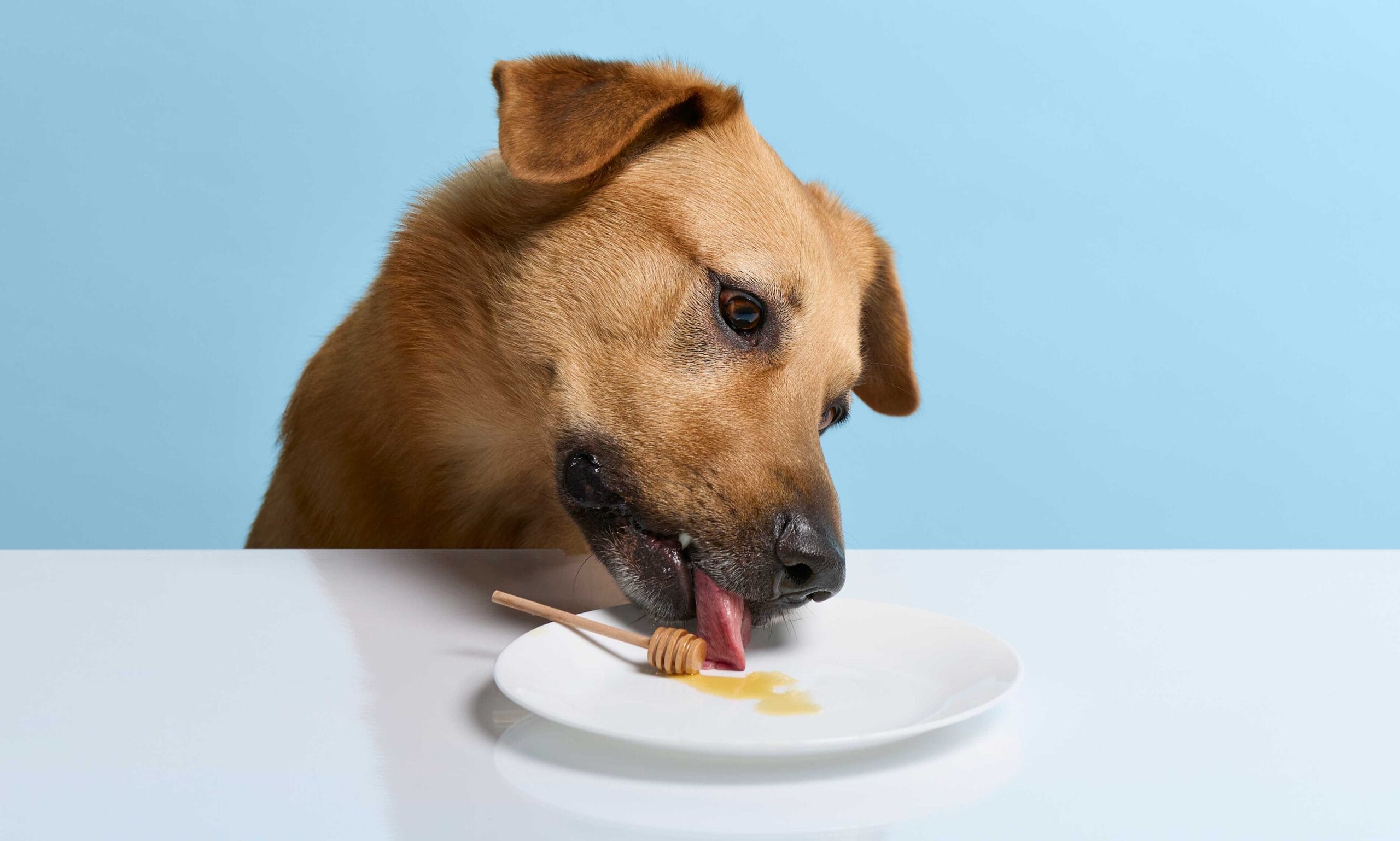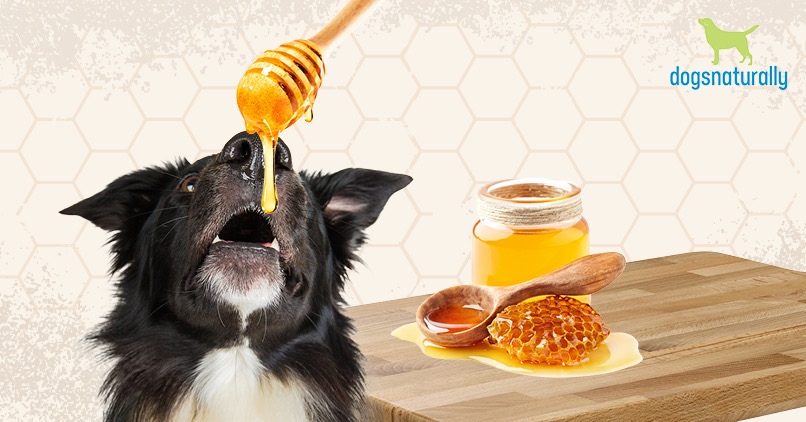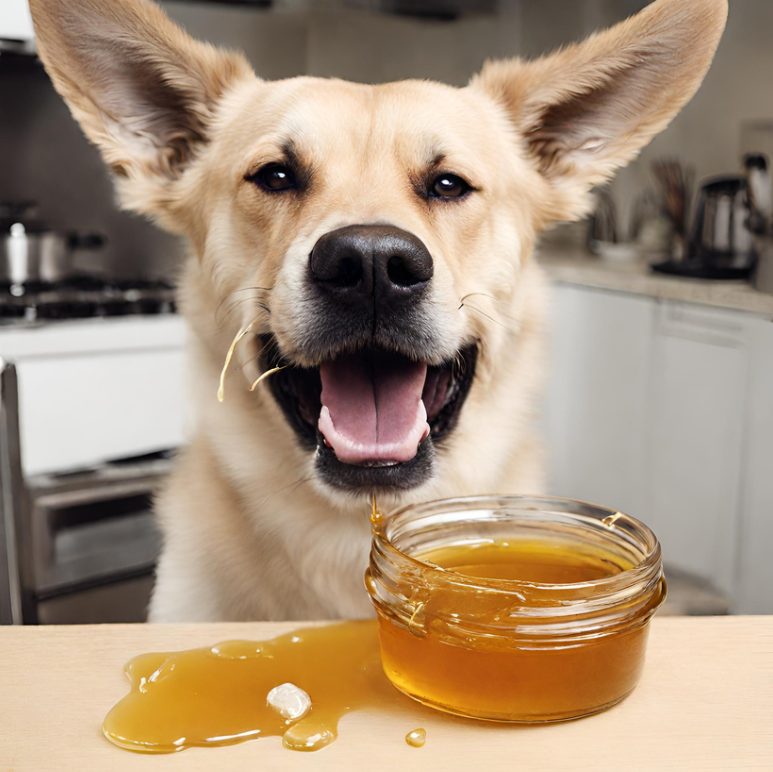Yes, dogs can eat honey. But, it should be in moderation.
Honey offers some health benefits, but there are risks too. Honey is a natural sweetener with vitamins and minerals. For humans, it’s a healthy choice. But, can our furry friends enjoy it too? This question is common among dog owners.
They want to ensure their pets’ safety. In this blog post, we will explore if honey is good or bad for dogs. We’ll discuss the potential benefits and risks. This way, you can make an informed decision. Let’s dive in and find out more about dogs and honey.
Introduction To Dogs And Honey
Many dog owners wonder if honey is safe for their furry friends. Honey, a natural sweetener, offers health benefits for humans. But can dogs eat honey? This blog will explore the relationship between dogs and honey.
Brief History
Honey has been used by humans for thousands of years. Ancient civilizations valued honey for its medicinal properties. Dogs have always been part of human history. They have shared many foods with us, including honey.
Nutritional Benefits
Honey contains vitamins and minerals. It can boost energy and soothe a sore throat. Honey also has antibacterial properties. For dogs, honey can be a natural remedy. Small amounts can help with allergies and digestion.
Honey is rich in antioxidants. These antioxidants promote overall health. They can support your dog’s immune system. Always give honey in moderation. Too much can cause health issues.
Is Honey Safe For Dogs?
Dogs can eat honey in small amounts. It can soothe a sore throat and provide a quick energy boost. Always consult your vet before giving your dog honey.
Honey is a delicious and natural treat loved by many. But dog owners often wonder if it’s safe for their furry friends. Let’s explore if honey is a good choice for your dog.Health Considerations
Honey contains natural sugars and nutrients. These can boost your dog’s energy levels. It also has antioxidants that support overall health. Small amounts of honey can soothe a dog’s throat. This can be helpful if your dog has a mild cough.Potential Risks
Though honey has benefits, it also carries some risks. Honey is high in sugar. Too much sugar can lead to weight gain and dental issues. Puppies and dogs with weak immune systems should avoid honey. Raw honey can contain botulism spores. These spores can be harmful to young or sick dogs. “`Nutritional Value Of Honey
Honey is a sweet treat loved by many. But can dogs eat honey? Let’s explore the nutritional value of honey to understand its benefits for dogs.
Vitamins And Minerals
Honey contains essential vitamins. It has vitamin B6, which helps brain function. It also has vitamin C, which boosts the immune system. These vitamins are good for a dog’s health.
Honey also has minerals. It contains calcium, which strengthens bones. It has iron that helps make red blood cells. These minerals are important for a dog’s well-being.
Caloric Content
Honey is high in calories. One tablespoon has around 64 calories. This can add up quickly. Dogs need to be active to burn these calories.
Too many calories can lead to weight gain. It’s best to give honey in small amounts. This helps avoid extra calories and keeps dogs healthy.
Benefits Of Honey For Dogs
Honey isn’t just a sweet treat for humans; it can be beneficial for dogs too. You might be surprised to learn that honey offers several health perks for your furry friend. Let’s explore some of these benefits.
Boosting Immunity
Honey has natural antibacterial properties. This can help boost your dog’s immune system. A stronger immune system means fewer vet visits and a healthier, happier pet.
Have you noticed your dog getting sick often? Adding a small amount of honey to their diet could help. Just a teaspoon mixed into their food might make a big difference.
Soothing Throat Irritations
Have you ever had a sore throat and found relief with a spoonful of honey? The same soothing effect applies to dogs.
Honey can coat their throat, providing relief from coughs and minor irritations. This can be especially useful during allergy season.
However, always consult your vet before introducing honey to your dog’s diet. A little goes a long way, and you want to ensure it’s safe and appropriate for your specific pet.
What other natural remedies have you tried for your dog? Could honey be the next one to test out?
Risks Of Feeding Honey To Dogs
Feeding honey to dogs might seem harmless. But there are risks to consider. Dogs can have different reactions to honey. Some might be mild, while others can be severe. Below, we discuss some of these risks.
Allergic Reactions
Dogs can be allergic to honey. Symptoms may include itching, swelling, or difficulty breathing. Always watch your dog after giving them honey. Even a small amount can cause an allergic reaction.
Risk Of Botulism
Honey can contain botulism spores. This bacteria is dangerous for dogs. It can lead to muscle weakness, paralysis, or even death. Puppies and older dogs are especially at risk. It’s best to avoid giving honey to these vulnerable pets.

Credit: be.chewy.com
Appropriate Honey Portions
Many dog owners wonder if honey is safe for their furry friends. Honey offers many health benefits for dogs, but it’s important to serve it in the right portions. Small amounts can be beneficial, but too much can cause health issues. Understanding the proper serving size and frequency is crucial for your dog’s well-being.
Serving Size Guidelines
The serving size of honey for dogs should be small. For most dogs, one teaspoon of honey per day is enough. Larger dogs can have up to one tablespoon. Always start with a small amount and observe any reactions. Dogs with health issues should have even smaller portions.
Honey is high in sugar, so moderation is key. Too much honey can lead to weight gain and other health problems. Always consult your vet before adding honey to your dog’s diet.
Frequency Of Consumption
Dogs should not eat honey every day. Instead, offer honey as a treat once or twice a week. This frequency ensures they get the benefits without the risks of excessive sugar intake.
Using honey occasionally can help with allergies, coughs, or digestive issues. Always monitor your dog for any adverse effects. If your dog shows signs of discomfort, reduce the frequency or stop giving honey altogether.
Choosing The Right Honey
When it comes to feeding your dog honey, choosing the right type of honey is crucial. Not all honey is created equal, and some types are better suited for dogs than others. Let’s dive into the options available to ensure you make the best choice for your furry friend.
Raw Vs. Processed Honey
Raw honey is unfiltered and unpasteurized, meaning it retains more natural enzymes and nutrients. This makes it a healthier option for your dog.
Processed honey, on the other hand, is often heated and filtered, which can strip away beneficial properties. It might also contain additives that aren’t good for dogs.
Next time you’re at the store, look for labels that clearly state the honey is raw. Your dog will benefit more from the natural goodness of raw honey.
Organic Options
Organic honey is another excellent choice. It is produced without the use of pesticides or chemicals, making it a safer option for your dog.
Choosing organic honey ensures that you’re avoiding harmful substances that could affect your dog’s health. It’s worth the slightly higher price for the peace of mind it offers.
Have you ever tried organic honey yourself? The rich flavor and added health benefits can be a great addition to your dog’s diet as well.
So, next time you’re picking up honey, remember these tips. Your dog’s health and happiness are worth it. What type of honey will you choose for your dog today?

Credit: www.petietec.com
Alternatives To Honey For Dogs
Honey can be a sweet treat for dogs, but it is not always the best choice. Dogs can have different reactions to honey, and it can be high in sugar. So, what are some good alternatives to honey for dogs? Here are some safe and healthy options.
Safe Sweeteners
There are several sweeteners safe for dogs. One option is unsweetened applesauce. It is low in sugar and full of vitamins. Another choice is pureed pumpkin. It is sweet and also good for your dog’s digestion. You can also try a small amount of molasses. It is rich in minerals and vitamins. Always choose unsweetened versions to avoid extra sugar.
Healthy Treat Options
Healthy treats can be a great alternative to honey. Carrots are a perfect choice. They are crunchy and sweet, and dogs love them. Blueberries are another good option. They are low in calories and high in antioxidants. You can also give your dog plain, cooked sweet potatoes. They are tasty and nutritious. All these treats are good for your dog’s health and can be given in moderation.

Credit: www.dogsnaturallymagazine.com
Frequently Asked Questions
How Much Honey Can I Give My Dog?
Give your dog honey in moderation. Small amounts, like a teaspoon, are safe occasionally. Avoid giving honey to puppies or diabetic dogs. Consult your vet for precise guidance.
Is Honey Toxic For Dogs?
Honey is not toxic for dogs, but should be given in moderation. Excessive consumption can lead to obesity and dental issues.
How Does Honey Help Dogs?
Honey soothes sore throats, aids digestion, and boosts energy in dogs. It also helps with allergies and promotes healing.
Does Honey Stop Dogs From Itching?
Honey can help soothe a dog’s itchy skin due to its natural antibacterial and anti-inflammatory properties. Always consult your vet first.
Conclusion
Dogs can eat honey in moderation. It offers some health benefits. Always choose raw, natural honey. Avoid honey with added sugars. Monitor your dog for any allergies. Small amounts are usually safe. Consult your vet if unsure. Treat honey as an occasional treat.
Never replace balanced dog food with honey. Happy and healthy dogs need proper nutrition. Enjoy giving your dog a sweet treat responsibly.

